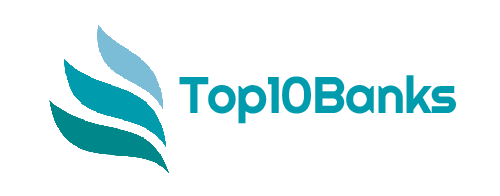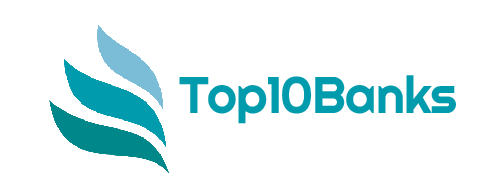How to open a US business bank account remotely (without SSN)

John Thorstensen
John is a recognized world expert in investing. He has tested dozens of investment clubs, communities and neobanks. His research has been featured on Bloomberg, Business Insider, The New York Times, Wall Street Journal, CNet and more.
Most US banks require you to have a Social Security Number (SSN). In this article we will explain and show how you can open a US business bank account without having an SSN number, only with EIN number and without leaving your home. Tested and evaluated by our team of experts.

- No-fee sign-up!

- No-fee sign-up!
Content
Why is it so difficult to open a business bank account as a non-resident?
First of all, non-resident aliens are eligible to open a business account only if the entity is registered in the country. So, the first step is to officially set up your company in the United States, which will give you an EIN (Employer Identification Number) that identifies your business.
This 9-digit number is essential for opening the bank account since it’s your proof of registration. Non-citizens and non-resident aliens are more likely to face some challenges when trying to open a business bank account in the US.
As the landscape is constantly changing, some bank employees may not be familiar with all policies regarding foreigners. You might be rejected by a manager who believes non-residents cannot open a business bank account, when, in fact, they can! In such cases, you must come prepared and aware of your rights.
If you want to open an account with traditional banks, whether small or large, you should start booking your plane ticket. Banks require a physical visit to a branch in order to verify your identity in accordance with Know Your Customer (KYC) guidelines.
Know your customer
Traditional banks are required to follow Know Your Customer (KYC) guidelines, proposed by the US’s Financial Crimes Enforcement Network (FinCEN) in 2014 to avoid money laundering and terrorism financing. The KYC requires that US Banks make an effort to verify customers and their risks. In practice, you may be able to start your application online, but at some point, you’ll have to make an appointment to show your documents. Know Your Customer guidelines made it more difficult for non-residents and non-citizens to open a business account in traditional US banks. Financial institutions started demanding detailed diligence information to check a company’s credibility, in order to verify if it’s profitable for the bank to maintain a business relationship with a customer.

Fortunately, neobanks have simplified business financial management by allowing you to skip all diligence processes to open an account.
Register your company
First of all, it’s not possible to open a bank account in the U.S. as a foreign company. Non-resident aliens are eligible to open a business account only if the entity is registered in the country and has an EIN, which is a unique identification for the Internal Revenue Service (IRS) to administer federal taxes.
The first step is to officially set up your company in the United States, which will give you an EIN to identify your business. This 9-digit number is essential for opening the bank account since it’s your proof of registration. You can register your company in the US as one of the options below:
- Limited Liability Company (LLC)
- Sole Proprietorship
- Corporation
- Partnership
- S Corporation
- Cooperative
Requirements for non-residents
Once you get this step out of the way, you’re ready to start analyzing the best financial institution for your company.
Will your business have a physical presence in the United States? If so, the process is straightforward, as you’ll have an address and the possibility to go - or send someone - to a bank branch. However, if your company doesn’t have a subsidiary in the country, the best option is to open an account in a neobank (also called online, digital, or internet-only bank).
Take into account that the bank must have a presence in the state your company is registered, if it’s a digital bank no physical presence is required. In order to make an assertive choice, you can contact the bank in advance to find out their services and requirements to open an account. The main documents you usually have to provide are:
- Photo ID of the director opening the account
- EIN confirmation letter
- Proof of business address
- Proof of personal address of the director
- Articles of incorporation/organization
- Identification documents
Many banks may also ask for a minimum deposit or even charge a monthly fee if the balance goes below a certain amount. Make sure to carefully check all those details with the financial firm before opening a business bank account. All details are important to be analyzed according to your type of business. Perhaps an institution that charges a small fee will provide better financial resources for your company.
Choosing a bank
Make sure to choose a bank that is foreigner-friendly and has a business plan that suits your needs. Overall, larger banks are more open to non-residents, such as Bank of America, Wells Fargo, Citibank, and JP Morgan Chase, as they are more willing to take risks than small ones.
However, they usually require a personal visit at a US branch to hand in your documents, and also a physical business address. For non-resident aliens, Know Your Customer guidelines means that it may not be possible to complete the whole process overseas - at least not on traditional institutions.
Fortunately, neobanks and fintech companies are making it much easier for foreigners to open accounts in the United States without having to formally visit the country. New financial businesses, such as Wise (formerly TransferWise) and Mercury let customers open an account 100% online and remotely.
Those fintech companies not only offer account plans that suit most business needs, but they also charge fewer fees - especially on currency conversion and international transfers - than large banks.
Traditional banks x Neo banks
Traditional banks are becoming really difficult to do business with, as they require a physical presence to open a bank account, charge high fees for their services and have friction at every step that simply slows down your financial management.
There’s no doubt that neobanks and fintech companies are the most flexible option for foreigners running an online or small business. Usually, the opening process is easier, faster, can be done from anywhere, doesn’t require a minimum deposit, nor a monthly fee.
Even without full banking licenses, neobanks are still regulated and secured. Internet-only service offerings are similar to those of traditional banks and credit unions, but limited. Some neobanks offer limited or no credit to control their risk, others also don’t offer loans. That’s why you should first search all financial services before choosing a bank to open an account.
However, through strategic partnership with other banks that wish to be part of this new generation, neobanks are able to offer a wide range of services that perfectly meet a company's daily financial needs. Those services generally include:
- Checking and savings accounts
- Payment
- Money transfers
- Money lending
Smart financial management
For better usability, entrepreneurs can combine two accounts. We recommend using Wise for a borderless account, which offers multi-currency exchange with the best market conversion rates; and Mercury for a USD account with low fees, and options for physical business debit cards, and also online debit cards.
Combining those two bank accounts, you minimize your cross-currency expenses and have a business debit card in your hands. Moreover, you’ll have access to almost instantaneous cross-border transfers, which could take days, and lots of bureaucracy in traditional banks.
About the author

John Thorstensen
John is a recognized world expert in investing. He has tested dozens of investment clubs, communities and neobanks. His research has been featured on Bloomberg, Business Insider, The New York Times, Wall Street Journal, CNet and more.





